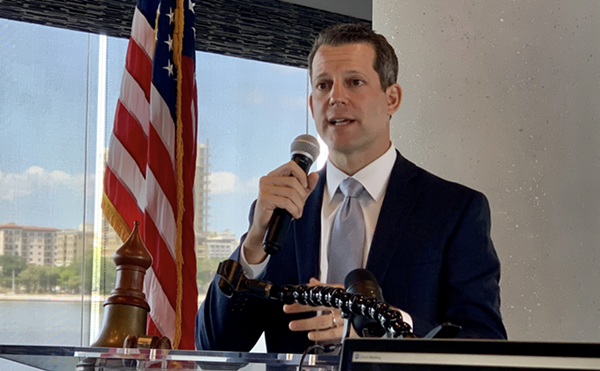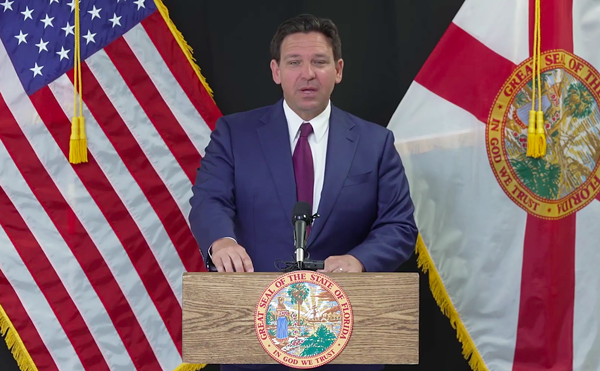Here's my Wexler profile, courtesy of the St. Pete Times archives:
THE MAN FROM ATLANTIC Series: SUNDAY ARTS
[SOUTH PINELLAS Edition]
St. Petersburg Times - St. Petersburg, Fla.
Document Text
Turn on the radio, click on the TV, flip through the stacks at the record store and you can't help but bump into Jerry Wexler.
You may not hear or see his name, but his legacy is all over popular music.
Last year, Rolling Stone published "50 Essential Albums" for its "Women in Rock Special Issue," the No. 1 and No. 3 selections, Aretha Franklin's I Never Loved a Man the Way I Love You and Dusty Springfield's Dusty in Memphis. Both were produced by the man who steered Atlantic Records through the 1960s and '70s from a tiny operation to an industry titan.
"I made significant records," says Wexler, seated in his sun- washed living room, overlooking the pool of his waterfront home near Sarasota.
"But I think more important is the range of music I was able to participate in. You know, when you go from Willie Nelson to Dusty Springfield, with Wilson Pickett in between, that's quite a stretch."
At 87, the formerly tall and handsome Wexler has sacrificed a bit of his once-intimidating physicality. But he remains a witty raconteur, repeatedly jumping up from a soft white leather sofa to fetch the CDs and memorabilia that illustrate his many stories.
"I worked with three geniuses," he says, beaming as the years seem to fall away: "Ray Charles, Aretha Franklin and Bob Dylan."
A little bit of soul
Charles had been signed to Atlantic Records just before Wexler fast-talked his way into a one-third partnership of the label in 1953. As Charles rose to national prominence, so did Atlantic in the world of rhythm and blues. As a reporter for Billboard in 1949, Wexler had started using the term "R&B" for what had been called "race records."
"We never did anything to advance Ray Charles. He did it all. He advanced us," Wexler insists. "I spoke to him a couple of months ago. I hadn't spoken to him in years. There's still a lot of love. He said to me, "Man, those were my best days."
Wexler used what he learned from Charles and produced hits for acts ranging from pop stars The Drifters to blues great Champion Jack Dupree. Wexler also helped reignite the career of blues shouter Big Joe Turner. Wexler first saw Turner perform in Kansas City during the 1940s when Wexler was paying far more attention to the country and blues of America's heartland than to his classes at Kansas State University.
During the same period, Wexler helped make stars out of soul heavyweights Solomon Burke and Wilson Pickett.
In 1967, Wexler signed a struggling young singer from Columbia Records. If Wexler's sole contribution to popular music had been getting Aretha Franklin to transform Otis Redding's Respect from a semi-misogynistic tune to a roaring feminist anthem, he'd still have made the history books.
Before she teamed with Wexler, Franklin hadn't tapped into her gospel roots. Her producer knew from the start she'd be great: "Aretha Franklin has the qualities of the superstar," Wexler wrote in the liner notes to her 1967 Atlantic debut album.
The following year, Wexler brought British pop singer Dusty Springfield to FAME Studios in Muscle Shoals, Ala. It was a considerable gamble. Even Springfield doubted that his choice of music and musicians would suit her voice.
The session's result: the enduring hit single Son of a Preacher Man, and an album that remains a masterpiece of blue-eyed soul.
During the early 1950s, Wexler and his Atlantic partner Ahmet Ertegun went south to produce Crescent City legend Professor Longhair. Twenty years later, New Orleans native Dr. John was reeling from a triple shot of mediocre albums following his lauded 1968 debut Gris-Gris. The 1972, Wexler-produced Dr. John's Gumbo marked a return to the performer's roots and provided Dr. John with the hit that revitalized his career.
At the same time, Wexler was starting Atlantic's first country music division. It didn't produce commercial hits, but Doug Sahm and Band, which features guest spots by Dr. John and Bob Dylan, is now considered a cult classic of alt. country. So are the two Willie Nelson albums Wexler oversaw, Shotgun Willie (1973), and especially Phases and Stages (1974).
"I consider them my Smithsonian entries," Wexler says, chuckling.
Wexler resigned from Atlantic in 1975, having cashed in his one- third ownership in 1967. The rise of disco pushed Wexler's classic R&B out of the limelight.
"Each company must do its best to fill the pulsating needs of mediocrity in order to maximize its potential for success," Wexler griped in 1979. "We might as well be selling hubcaps." (The quote appears, along with dozens of others by Wexler, in his friend Peter Guralnick's definitive chronicle of southern R&B, Sweet Soul Music.)
Driving Dylan's comeback
Grumbling aside, 1979 marked a turnaround in Wexler's fortunes.
He produced English rockers Dire Straits' second disc, Communique, released in June of that year. It rose to No. 11 on the pop chart, cementing the band's career and proving that, at age 61, Wexler was still on top of the music world.
Then he got a call from an old friend whose own career needed some magic: Bob Dylan wanted to go back to the studio.
"When we were doing the Doug Sahm and Band album (in 1972), Dylan used to come by to hang out. He did the song Wallflower on that album," Wexler recalls.
"We took a little break, and we went into my office . . . he said to me, 'Man, I done the word trip. I wanna do the music trip.' I wasn't sure what he meant. But when he called me several years later I understood."
In 1978, while Wexler was producing Etta James' acclaimed Deep in the Night, Dylan asked Wexler to listen to some new material.
Dylan "walks over to the piano and he starts playing and he says, 'I've been writing on the piano.' Which was a new thing for him, because he'd always been writing on his guitar. I didn't think too much of it."
A year later, Dylan asked Wexler to produce his album.
"So, that's how (Slow Train Coming) happened," Wexler continues. "I didn't have a clue as to what it was going to be, nor did I care. I mean, when the boss says 'Jump' the response is, 'How high and when do I land?' So it turns out to be a wall-to-wall Jesus album. I couldn't care less. They were beautiful songs."
Wexler, who describes himself as a Jewish atheist, grins cheerfully over the irony of his having produced two of the all- time most popular gospel recordings: Franklin's 1972 Top 10 double- album Amazing Grace and Dylan's Slow Train Coming, which charted in the top 5.
Did those sessions ever cause him to think twice about religion?
"Hey man, the spiritual fervor is nothing but repressed sexuality," Wexler says in jest. "Sure, I get that all the time."
Not that Dylan didn't try to convert his friend. "I said, 'Bob, forget about me, you're talking to a confirmed, 62-year-old, card carrying Jewish atheist.' He laughed. We only had good times."
By the way, he says, Dylan isn't really the dark mystery he appears to be. "He's not like that at all," Wexler whispers. "He loves to laugh. He likes to be amused. He likes to get down."
Memoirs and crosswords
By the mid 1980s, Wexler dramatically scaled back his workload. During the early 1990s, after purchasing a winter home in Sarasota, Wexler produced an album by Etta James and one by venerable jazz pianist (and fellow Sarasota resident) Kenny Drew Jr.
Wexler then teamed with noted music historian/biographer David Ritz to pen his award-winning memoir: Rhythm and the Blues: A Life in American Music. Wexler's self-deprecating admissions and acute observations make for a compelling read.
In addition to offering a fly-on-the-wall view of some of pop music's most important recording sessions and transactions, the book reveals Wexler as a charmer and a hothead, a man realizing the American dream while indulging in "moods of insecurity and arrogance," and being driven by "a fear of failure."
"I told my co-writer, David Ritz, I don't want this to be a rose- petal encomium of the great man," Wexler says. "I want warts and all. I said go and find some people that don't like me, see what they've got to say."
In the book, Wexler admits that he was often an absentee father and philandering husband. He goes so far as to include bittersweet, and often just plain bitter, quotes by his two ex-wives and two surviving children. (Wexler's eldest daughter Anita died in 1989 of AIDS after overcoming a heroin addiction.)
Even in retirement, Wexler's is a sought-after voice. Strewn across the glass coffee table along with the framed portraits of pals like Dylan, is the afternoon's mail, which includes a tape of a BBC program on country music featuring Wexler, and a letter from the show's grateful producer.
But, "breakfast and the New York Times crossword puzzle are my main daily activities these days," Wexler says, almost apologetically. "My wife, Jean, as well; we are both aficionados. This is a brag, now: neither of us have failed to finish a daily, or a Times Sunday crossword puzzle, in 18 years. Now, that's not the London Times," he quickly adds; "that one is tougher."
For nearly two decades, Wexler has been married to novelist Jean Arnold, whom he met through mutual friends while vacationing in Sarasota. The couple also maintain a residence in New York.
"Jean lifted my loneliness and gave me the gift of love," Wexler writes in his autobiography. "Finally after a lifetime of temper tantrums, I learned to chill."
Next year, the feature film Unchain My Heart: The Ray Charles Story, is to be released. Actor Richard Schiff (The West Wing) plays Wexler, who advised Schiff to stress three characteristics in his portrayal: "Charm, intelligence and probity."
Despite all his accomplishments, he still talks frankly of the opportunities he missed.
"There were other acts I could've had and didn't that became big stars. But I ain't gonna tell you their names," he says, laughing devilishly. True to form, though, he doesn't dwell on the misses.
"The ones I missed would've been one of the best rosters imaginable. The hits are obvious. The flubs just fade into obscurity and people don't remember them."















